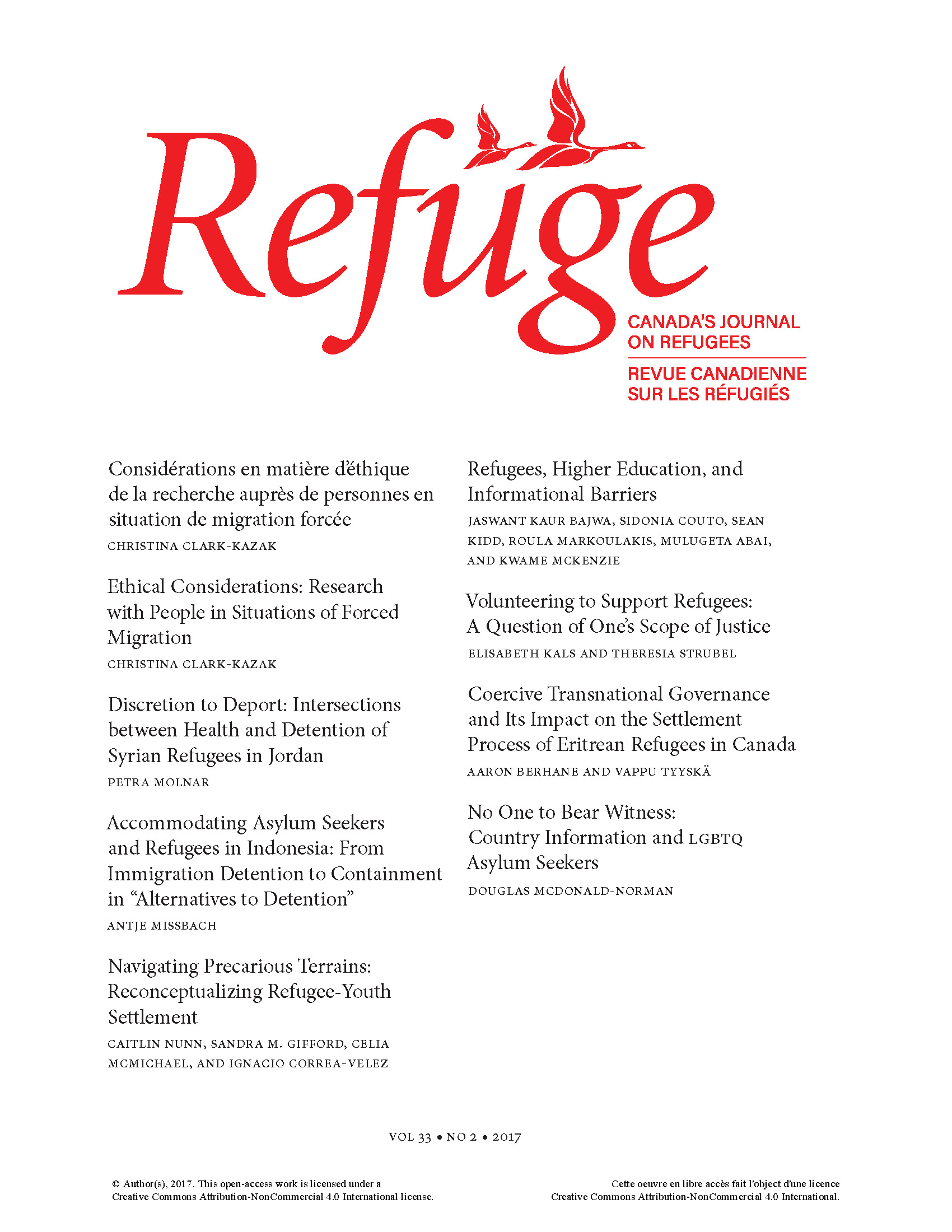Coercive Transnational Governance and Its Impact on the Settlement Process of Eritrean Refugees in Canada
DOI:
https://doi.org/10.7202/1043065arKeywords:
Canada, Eritrean refugees, Eritrean government, transnational governance, coercion, intimidation, security, sovereignty, immigrants' challenges, lack of protectionAbstract
This article will examine the transnational practices of the Eritrean government, and their impact on the settlement of Eritrean refugees in Canada. The focus is on actions by the Eritrean regime that have a negative effect on refugees’ capacities for successful integration, and undermine Canadian sovereignty. The concept of coercive transnational governance (CTG) is introduced, to highlight this neglected aspect of refugee resettlement, with illustrations from 11 interviews, including eight Eritrean refugees, one Eritrean community activist, and two Canadian law enforcement officers, about the impact of CTG on Eritrean refugees’ lives.
Metrics
Downloads
Published
How to Cite
Issue
Section
License
Copyright (c) 2017 Aaron Berhane, Vappu Tyyskä

This work is licensed under a Creative Commons Attribution-NonCommercial 4.0 International License.
Refuge authors retain the copyright over their work, and license it to the general public under the Creative Commons Attribution-Non Commercial License International (CC BY-NC 4.0). This license allows for non-commercial use, reproduction and adaption of the material in any medium or format, with proper attribution. For general information on Creative Commons licences, visit the Creative Commons site. For the CC BY-NC 4.0 license, review the human readable summary.







